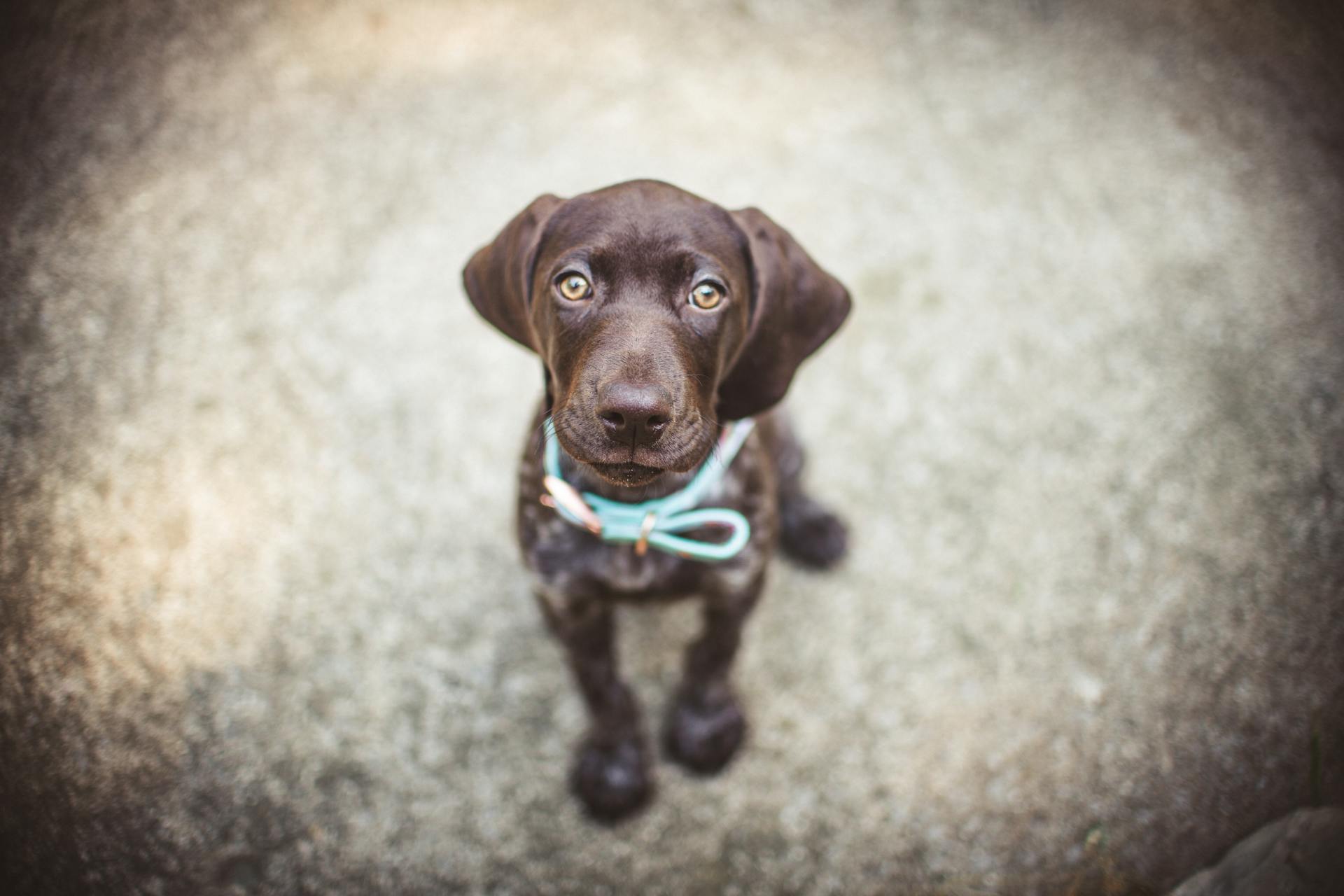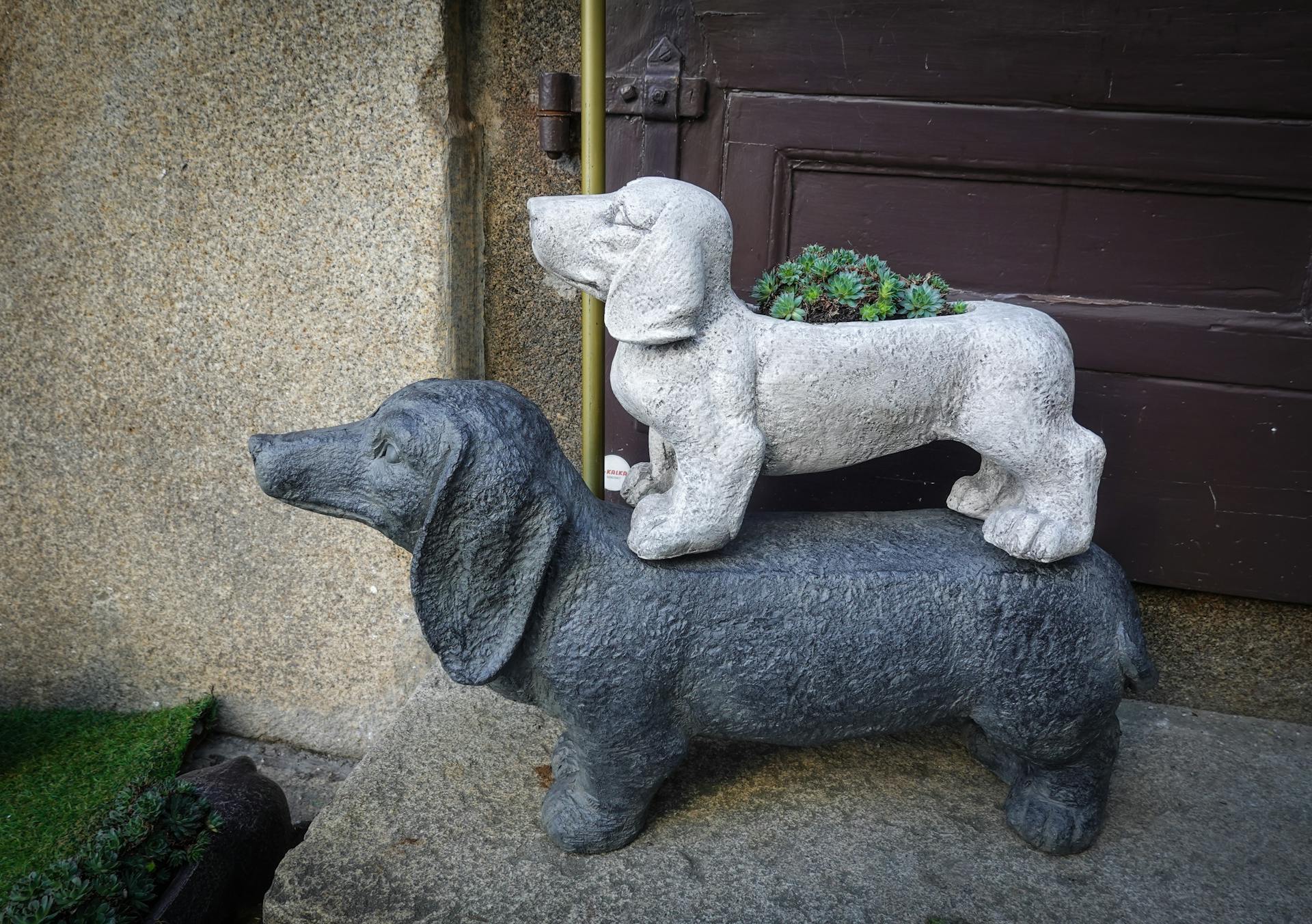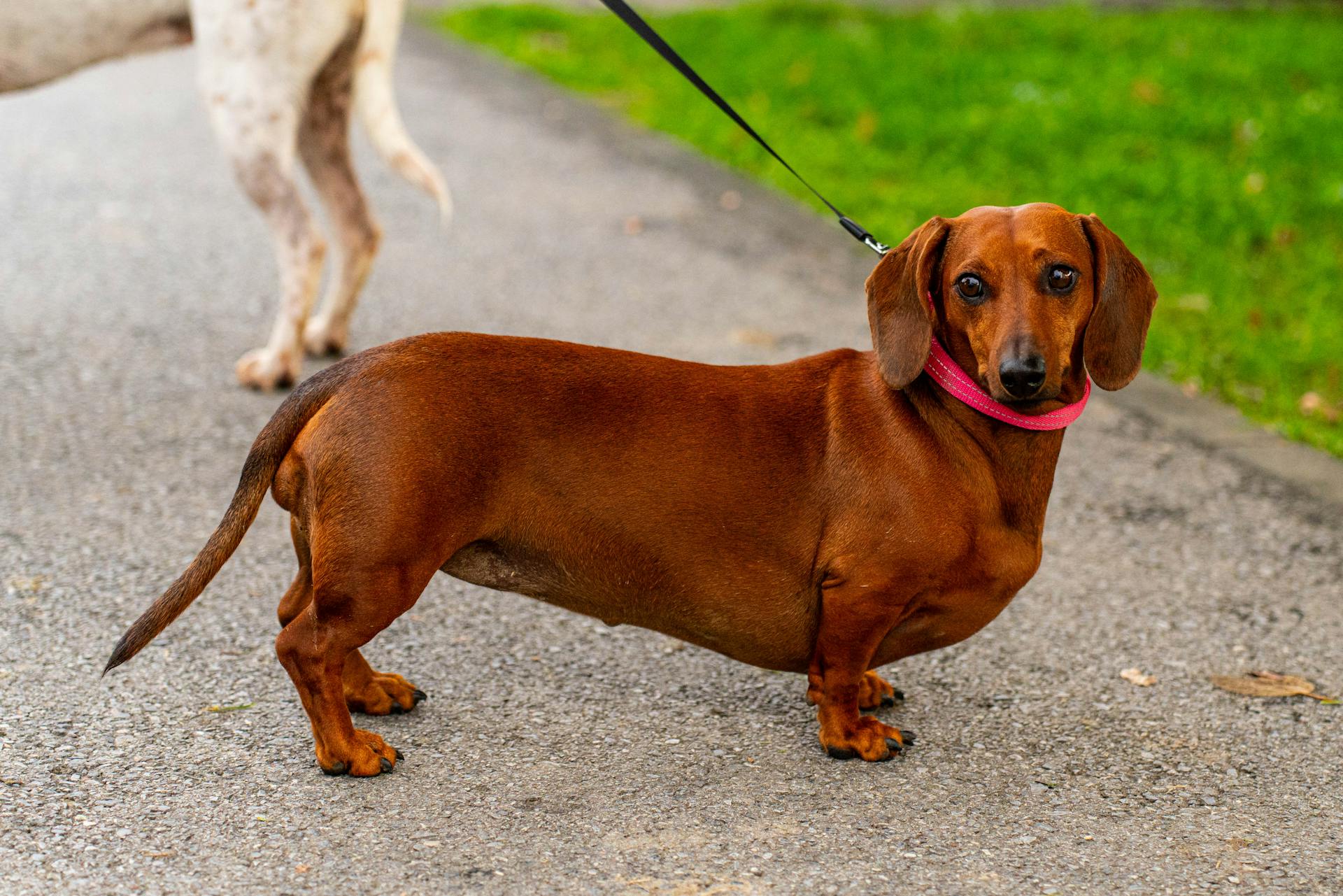
Dachshunds are a unique breed with a rich history, dating back to the 16th century in Germany. They were originally bred to hunt badgers and other burrowing animals.
Their short stature and long bodies make them well-suited for this type of hunting.
Dachshunds are a relatively small breed, typically weighing between 16 and 32 pounds.
Care and Upkeep
Dachshunds need daily exercise, preferably in a fenced yard with leash walks, to keep them happy and healthy.
They love to run, sniff, and investigate, and some varieties can even thrive in apartment living with regular daily walks.
A miniature longhair variety might be a good choice for apartment dwellers, but it's essential to remember that daily walks are a must for all Dachshunds.
They're naturally independent and love to follow scent trails, so it's crucial to keep them on a leash in unfenced areas.
Dachshunds enjoy playing games like chasing balls, but they often prefer to follow their noses rather than return the ball.
Suggestion: Are Dachshunds Good Apartment Dogs

They're also great at sports that test their hunting abilities, such as barn hunting, and some even participate in "wiener dog" racing events.
To keep their coats looking their best, Dachshunds require different levels of grooming depending on their variety.
Smooth-coated Dachshunds need only occasional brushing to remove dead hair, while longhaired varieties require weekly combing to prevent matting.
Wirehaired Dachshunds need the most care, with weekly combing and occasional stripping to remove dead hair.
Regular brushing is also a great opportunity to check for signs of health issues, such as dull coat sheen, which can indicate a lack of nutrients in their diet.
Dachshunds are prone to intervertebral disk disease, a condition that can cause pain and paralysis, so it's essential to keep them active and prevent obesity.
Avoiding movements that put stress on their back, such as jumping on or off furniture or running up or down stairs, can also help prevent this condition.
Preventing obesity is crucial, and Dachshunds should have active lives to stay healthy and happy.
Dachshunds are low-shedding and low-odor, making them a great choice for people with allergies, but they're not considered a hypoallergenic breed.
For more insights, see: How Much Exercise Do Dachshunds Need
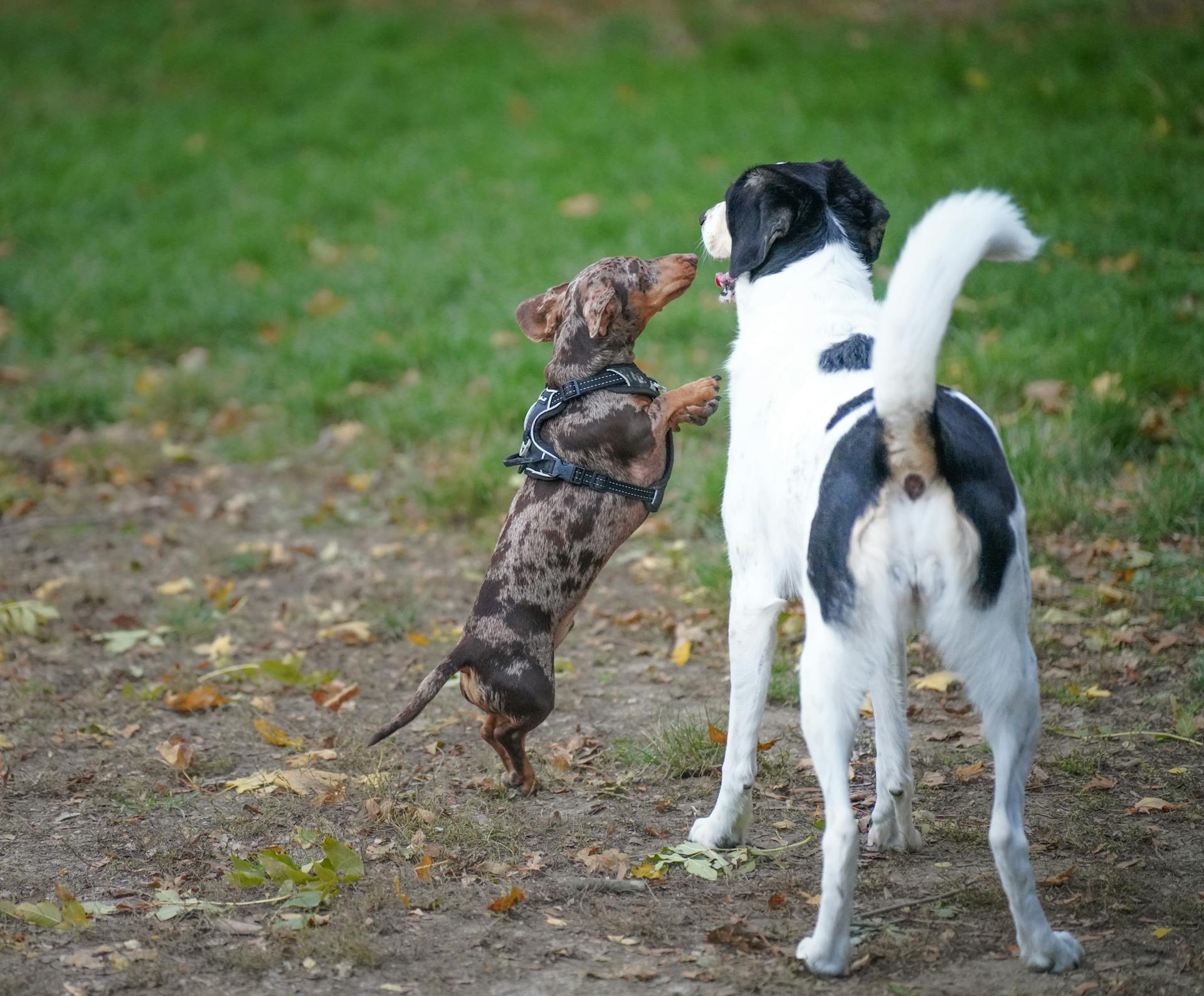
They should be bathed sparingly, no more than once a month, to prevent drying out their sensitive skin.
Regular brushing can also help prevent ear infections, which are common in Dachshunds due to their floppy ears.
By following these care and upkeep tips, you can help your Dachshund live a happy and healthy life.
Check this out: How to Avoid Ivdd in Dachshunds
Temperament and Behavior
Dachshunds are fearless, relentless, and even reckless at times, making them more terrier-like in disposition than hound-like. They were originally bred to confront badgers in enclosed spaces underground.
They're independent breeds that enjoy challenges and can be stubborn, making training a bit difficult. However, they respond well to rewards and consistent training.
Dachshunds are naturally protective and make excellent watchdogs, but their small size makes them less effective as protection dogs. They'll often bark a great deal to alert their family to potential threats.
As social animals, dachshunds need a decent amount of social attention every day and can become irritable and reactive if they don't receive it. They're best suited for single adults or families with older children who can interact with them gently.
Their burrowing instinct can lead to destructive behavior if left unattended for too long, so regular exercise and attention are crucial.
For more insights, see: Crate Training Dachshund
Attributes

Dachshunds have a unique physical appearance that sets them apart from other small breeds. Their long body shape and short legs have earned them the nickname "wiener dog".
Their muscular build and deeper barrel chest give them a larger lung capacity than most small-sized dogs. This is a result of their intentional breeding as hunters.
Flap-down ears protect the ear canal from dirt, seeds, and other objects that could cause problems when they're digging. This feature was bred into the breed to strengthen their hunting abilities.
A curved tail is another classic Dachshund feature, and it's easier to spot in tall grasses. This helps a pup's human hunting partner find them if they get stuck in a burrow.
Their loud bark is a characteristic of Dachshunds that's noticeable even to experienced dog owners. This is due to their larger lung capacity and deeper chest.
On a similar theme: Mini Dachshund Hunting
Temperament
Dachshunds are known for being fearless and relentless, with a terrier-like disposition that makes them great companions for people of all ages.
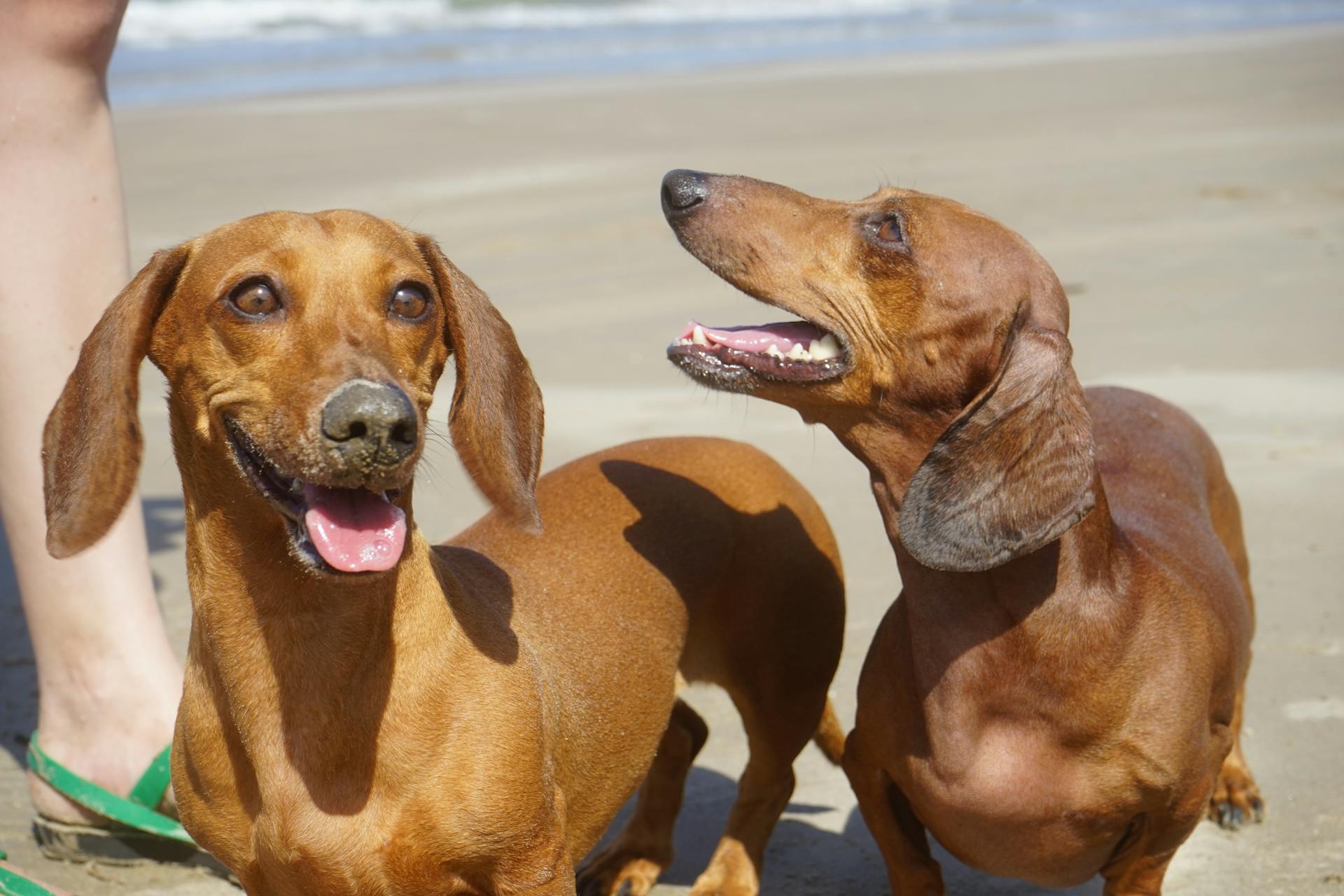
Their independent nature means they can be stubborn at times, but they respond well to rewards and consistent training.
As a breed, Dachshunds are energetic and playful, requiring regular exercise to stay happy and healthy.
They can be quiet house dogs and sofa companions, but their hound heritage entices them to follow animal scent trails, which may lead to ignoring pleas to return.
Dachshunds are generally not trustworthy around small rodent pets, and their size makes them only partially successful as protection dogs.
Some Dachshunds may bark a great deal, but with proper training and socialization, they can be excellent watchdogs.
Miniature Dachshunds are more likely to be timid, but longhaired varieties are generally less terrier-like and considered more docile and affectionate.
Wirehaired Dachshunds are more energetic and possibly more mischievous, while longhaired Dachshunds are thought to be mellower.
Dachshunds are fiercely loyal and bond closely with one person, but they can get jealous easily and become lonely if not given enough attention by their object of affection.
They're bred to burrow, so your pup might become destructive if left unattended for too long, burrowing and chewing their way through your home.
Broaden your view: Miniature Dachshund Dapple Long Hair
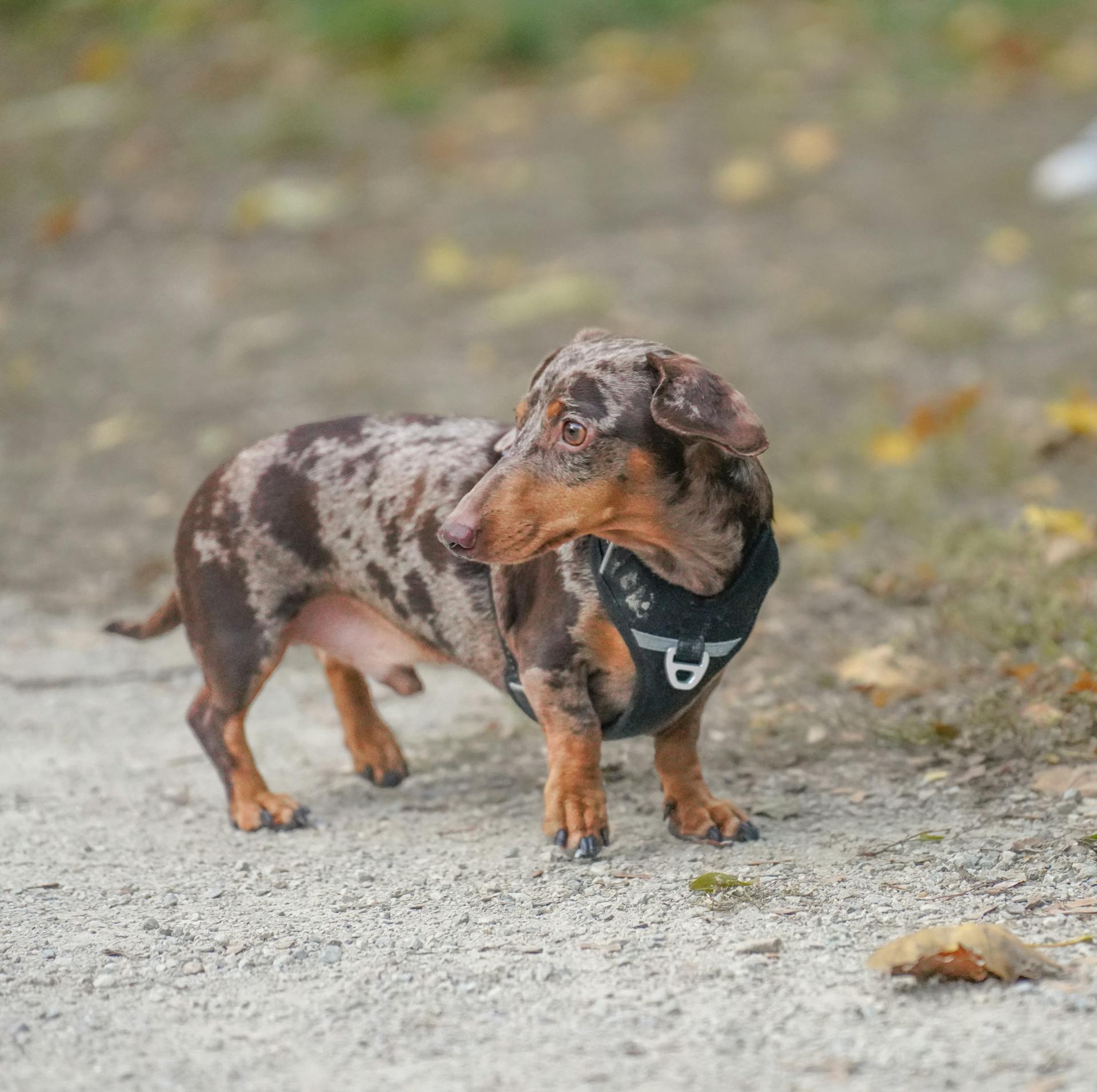
Dachshunds are best suited for single adults or families with older children, as they don't handle teasing well and their bodies aren't equipped for toddlers who may try to jump on them.
A Dachshund's personality may be influenced by their coat type, but proper training and socialization can help them become well-behaved companions.
Frequently Asked Questions
Do sausage dogs make good pets?
Yes, Dachshunds can make great pets for the right owner, especially those who socialize them well from an early age. With proper care and attention, they can be loyal and loving companions for families with children and other pets.
Are sausage dogs difficult?
Dachshunds can be challenging to train due to their independent nature, but they are also courageous and clever companions. With patience and consistency, their unique personalities can be a joy to live with.
Sources
- https://www.akc.org/dog-breeds/dachshund/
- https://www.britannica.com/animal/dachshund
- https://www.dailypaws.com/dogs-puppies/dog-breeds/dachshund
- https://www.akc.org/expert-advice/lifestyle/things-you-didnt-know-about-the-dachshund/
- https://www.aspcapetinsurance.com/resources/fun-facts-about-dachshunds/
Featured Images: pexels.com
